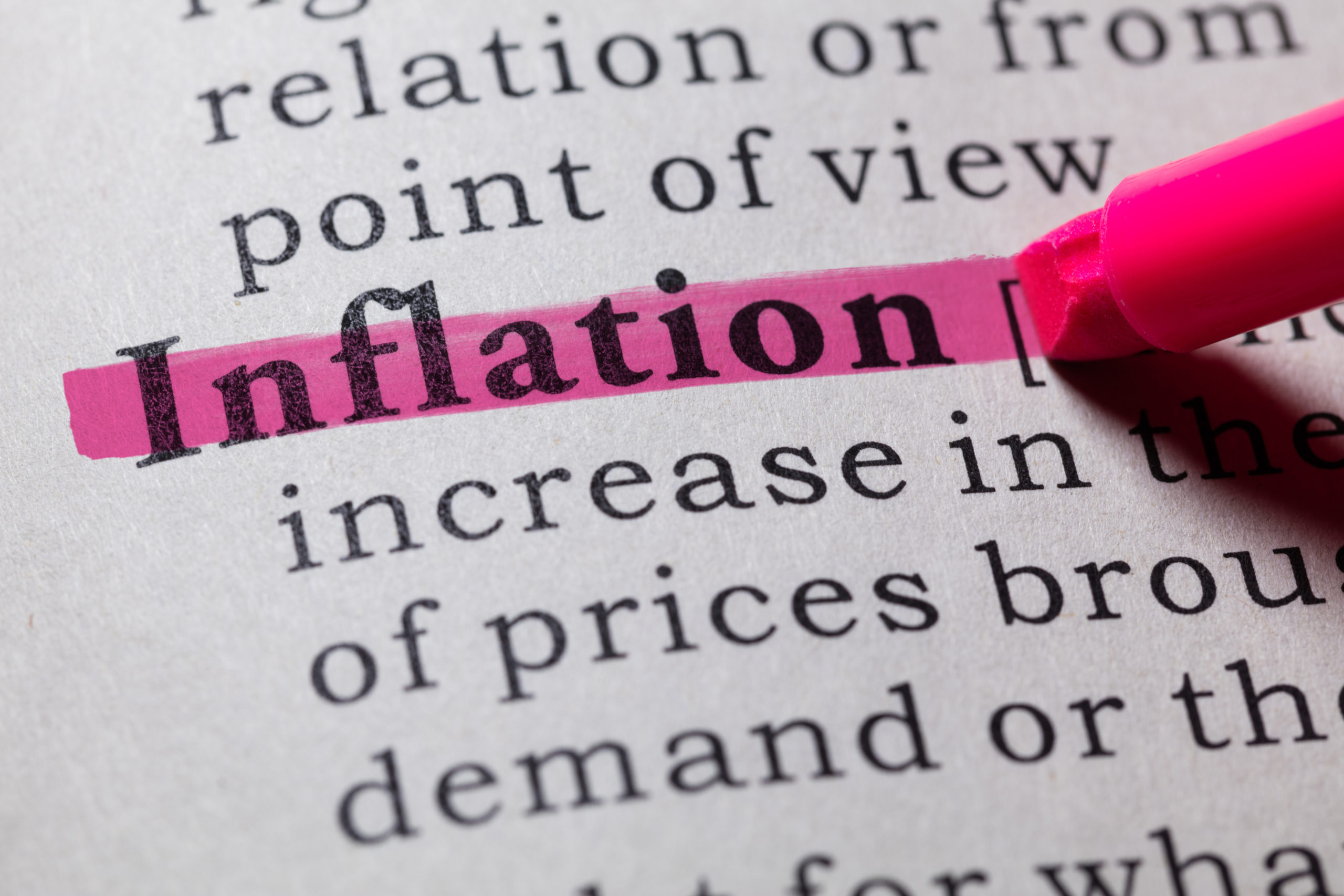The pandemic of 2020 forced the U.S. into one of the most abrupt recessions ever experienced. And, at least in part due to more than $5 trillion in federal stimulus putting cash into the hands of consumers, it was also one of the shortest. For more on why, read Why This Isn’t the Next Great Depression.
Many fear the new cash in circulation – or “increase in money supply” – might cause significant inflation, but should you?
Let’s look at what inflation is and what causes it, how money supply increases like federal stimulus affect it, and where we are now.
What is inflation?
Let’s start with what inflation is. Inflation is the increase in the prices of goods and services and is part of a healthy, growing economy. The word “inflation” usually causes fear and concern, but it’s important to remember that moderate inflation is to be expected.
Inflation has two sources – supply and demand.
- Demand-Pull inflation happens when demand for goods and services outpaces the supply. If you’re willing to spend more on a product, producers will happily increase prices. For example, millions of people pay more than $1,000 for the latest iPhone as soon as it is released because they want it badly enough.
- Cost-Push inflation happens when costs like wages and raw materials increase. Producers make fewer products when costs increase, causing price increases for consumers. For example, during hurricane Katrina, gulf oil operation costs skyrocketed for producers and gas prices rose from $1.94 to more than $3.00 per gallon.
Will stimulus funds cause inflation?
An increase in the money supply provides more to spend on goods in general, which can lead to demand-pull inflation – prices increase as demand increases. Take housing for example – record low mortgage rates led to higher demand for homes and prices have increased significantly.
While stimulus funds do increase the money supply, this only causes inflation if people actually spend those dollars. If they save their stimulus check instead, the money supply increase alone will not immediately drive inflation.
In the wake of the 2008 Great Recession, the Federal Reserve injected nearly $1 trillion to shore up banks and stabilize the economy. Fears of hyper-inflation ensued, yet it never occurred. Instead, inflation averaged just 1.71% from 2009-2020. Why? Banks kept much of the cash in reserve instead of lending it out to consumers – there was far more saving than spending.
Where are we now?
In 2020, inflation was 1.68% which is considered weak – moderate inflation is a sign of a growing healthy economy and the Federal Reserve’s target level of inflation is 2%.
As COVID-19 vaccines are distributed and the economy continues to reopen, we will likely see price increases in sectors like travel. However, with slack in the labor market, we’re not likely to see significant inflation in the near term.
As inflation starts to move past 2%, we will likely see the Federal Reserve take action to increase interest rates and sell government securities to banks, two actions that tighten the money supply and historically dampen inflation.
What should I do?
We recommend two things:
- Expect inflation. When in a healthy range, inflation is a healthy byproduct of a growing economy.
- Plan for inflation. While we don’t know exactly how much costs will increase, they will certainly increase by some amount – a dollar in 20 years won’t purchase as much as it does now. Factor inflation into your financial planning to help ensure you can maintain today’s lifestyle into the future.
Sources – FRBSF, WTOP News, In 2013 Dollars
The “Alterra” name was coined by joining the Latin roots “alter”, the origin of the word “altruism” with “terra” meaning earth or land. This name reflects the company philosophy of “clients before profits” and providing firmly grounded advice.


